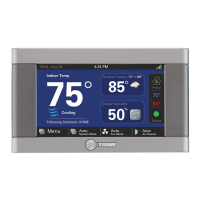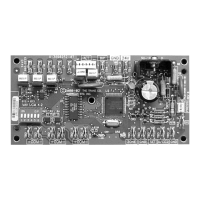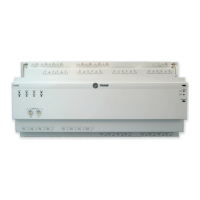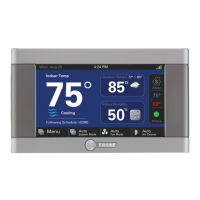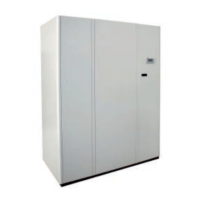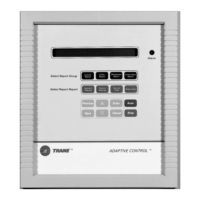22 BAS-SVX40A-EN
Modifying the Network
This section describes how to modify an established wireless network. Most modifications can be
made by using either the Tracer TU service tool or the WCI.
To use Tracer TU, you must establish communication with a wireless network and attach to a
wireless device. For instructions, see “Appendix: Using the Tracer™ TU Service Tool with Wireless
Networks,” p. 27.
Adding Additional WCIs to an Existing Network
Using Tracer TU
1. After attaching TU to a wireless device, select Open Network from the Wireless menu.
Any WCI with a correct rotary address setting that is located within radio range of a network
member, will join the network.
2. Observe the green NWK LED illuminate on a WCI that joins the network.
Using a WCI
1. Press the OPEN_NET button on any WCI on the network to open the network for joining.
Any WCI with a correct rotary address setting that is located within radio range of a network
member, will join the network.
2. Observe the green NWK LED illuminate on a WCI that joins the network.
Adding Additional Coordinators to a Tracer SC
A Tracer SC can have a total of eight WCIs installed on it. Each WCI installed on a Tracer SC becomes
the coordinator of a separate network. If additional coordinator WCIs/networks are needed on a
Tracer SC after the network has been formed, follow these steps.
1. Remove power from the Tracer SC. (This will not affect the existing networks.)
2. Address the new WCI(s) according to the scheme explained in “WCI Addressing,” p. 10, making
sure the addresses do not conflict with existing WCIs.
3. Install the WCI(s) on the Tracer SC as described in “Mounting and Wiring the WCI,” p. 12,
Figure 6, p. 14, and Figure 7, p . 14. Use a daisy-chain configuration to install multiple WCIs.
4. A new network will be created for each newly installed WCI, with each WCI as coordinator of
the newly created network. Allow sufficient time for all member WCIs to join the new network.
5. Start Tracer SC Device discovery. (Refer to Tracer SC online help for the discovery procedure.)
Devices that previously existed on the wireless network do not need to be rediscovered.
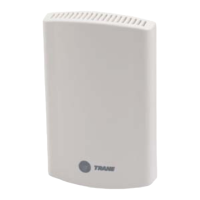
